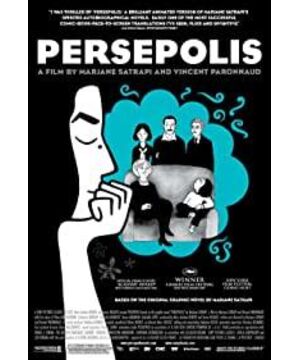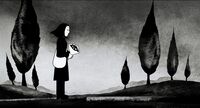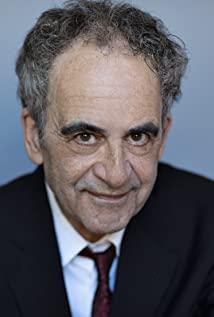It is worth mentioning that this fundamentalist repressive regime was produced in the revolution of the pursuit of freedom to overthrow the dynasty. At the beginning of the story, we were introduced to the theme of the story - the pursuit of freedom. After Maja escaped from the external coercion of Iran's repressive regime, she came to free France, however, after intermittent excitement, there was a emptiness of life, a lack of meaning, freedom without real Realization, Maja is captured by a sense of emptiness, and thus we see another enemy of freedom besides external coercion-inner emptiness.
Emptiness makes us willing to be enslaved, we escape from emptiness in enslavement, maybe this is the psychological factor at the beginning of the story, the revolution created a repressive society after the overthrow of the autocratic regime. This reminds me of Fromm's "Escape from Freedom". Freedom is a responsibility that others cannot share. People are afraid of taking on this responsibility. Fromm believes that the escape from freedom is the psychological basis for the rise of fascism.
After returning to Iran, in a dream, God, who was expelled by Magya in her childhood fantasy, appeared again. Magya's childhood pursuit of freedom expelled God, and when she was empty, God returned, And there is also Marx who appeared in the kingdom of heaven with God. The two symbolize dependence and freedom respectively. In this dream, they are unified. God is no longer a threat to freedom. On the contrary, God has become Magya in the pursuit of freedom. rely on.
Maja had two spiritual mentors in the real world. One was her uncle who believed in communism. His uncle once smuggled into the Soviet Union by swimming and was imprisoned by the Iranian dynasty for nine years. Before he was finally executed by the fundamentalist regime, he also To instill in Maja the confidence that the dictatorship of the proletariat is inevitable. In her uncle's teaching, the value of the individual appears to be a tool for the realization of history.
Marga's other spiritual mentor was her grandmother, who taught her from beginning to end to "be yourself," not to teach her to follow a kind of cynicism that doesn't concern herself, but to encourage her To fight for freedom, to actively take responsibility for freedom.
If what her uncle taught her was to resist external coercion, then what grandma gave her was to overcome the emptiness within, and Marga still fell to grandma. Personal freedom is not a tool of resistance, but the purpose of resistance.
The whole film tells a story of fighting for the freedom of human nature under the squeeze of external coercion and internal emptiness.
View more about Persepolis reviews











